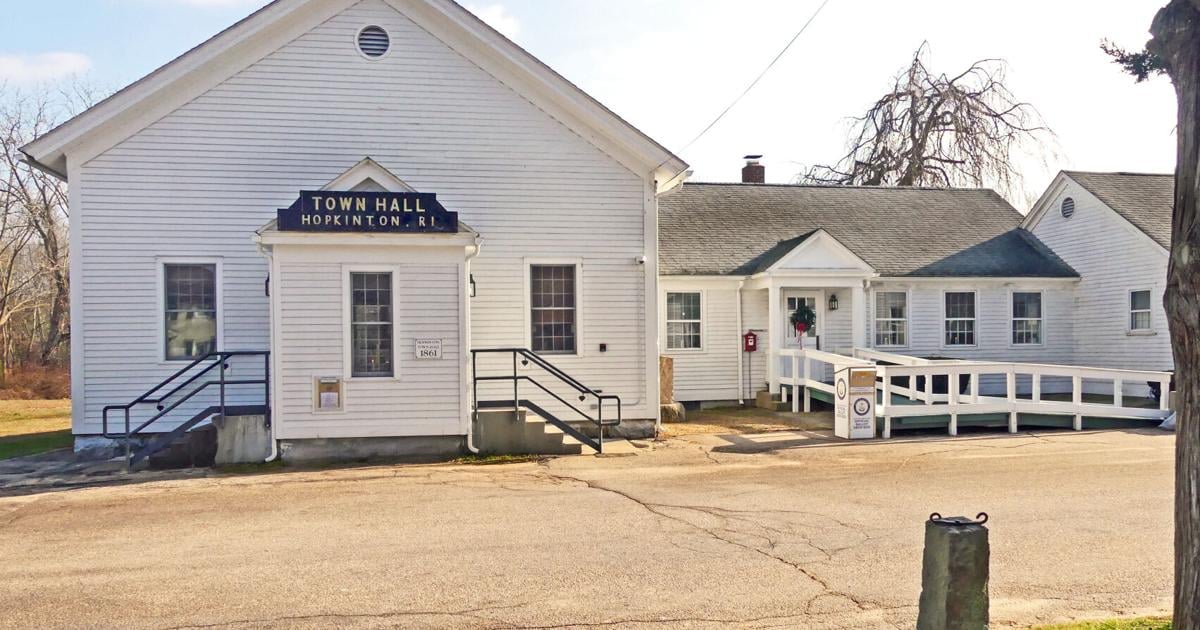Hopkinton Council sends plight of city’s marijuana businesses to voters | Richmond and Hopkinton
HOPKINTON – Community voters will have the final say on whether recreational marijuana sales and distribution businesses can locate in town, and any such establishment will first need to obtain a zoning permit for special use.
This week, Hopkinton City Council members voted 4-1 to hold a referendum on the November ballot that will ask whether the community should allow the state to license any cannabis-related business in the city of Hopkinton. The city councils of Hopkinton, Charlestown and Richmond have now all approved measures that will see referendum questions put on the ballot in November.
City Council Speaker Stephen Moffitt Jr. voted in opposition and said he was not opposed to the referendum – he indicated he was in favor of asking voters – but felt that it was inappropriate to impose further restrictions via special use permits if voters approved of such ventures. He said he felt having a referendum vote on zoning was already an opportunity that would not normally be available to residents.
“We wouldn’t allow them to vote on whether to authorize a new CVS, and we’re already walking out of the process to authorize (the referendum),” he said at Monday’s council meeting. “I’m not sure a lot of people realize the ramifications this could have on finances and taxes.”
Council members have debated whether to license businesses or go to a referendum for the past two months after the state moved to legalize recreational marijuana use earlier this year .
In late June, Hopkinton City Solicitor Stephen Sypole told officials that under the state’s approved statutes, options are limited and there is little the city can do outside of the holding a referendum to withdraw. Sypole told the council that certain aspects of the industry are so regulated by the state that there may not be much to put in a zoning ordinance besides designating where things are or aren’t. are not allowed.
This raised concerns at a public hearing on July 18, which resulted in the recommendation that such companies only be approved through a special use permit if voters decide to allow them.
Councilman Michael Geary said he understood the city was limited in its rights and abilities, but said council had a responsibility to look out for the best interests of city residents. He said the special use permit requirement is a tool that does just that.
“It may be a state-regulated thing, but it’s our backyard. We have to look over the fence a bit,” Geary said.
Council Vice Chair Sharon Davis, Councilor Scott Bill Hirst and Councilor Bob Marvel all expressed support for the special use permit measure, saying the requirement provides an extra layer of protection for the community.
“It at least gives the Zoning Board some power and judgment on this type of project,” Hirst said. “It’s not a huge improvement, but a little oversight is better than nothing.”
Moffitt said that with the legalization of recreational marijuana, there are no longer questions of legality when it comes to sales in Rhode Island. He said creating a special-purpose table before voters even go to the referendum is already setting tougher regulations for businesses and taking away the voice of residents before they’ve even cast their ballots.
“I recommend withdrawing the special use permits due to the fact that we will allow a referendum,” Moffitt said. “If it’s approved by the townspeople and they say they want it here, I don’t think it should be so restricted. I don’t think it would be fair to use the power of the council municipal to restrict this.
Although the vote will ultimately take whatever action the city might take at this time, Davis said it would be important to continue to gather information and find ways to educate the public about the facts ahead of the referendum.
Under the proposed law, the industry will be heavily regulated under state oversight, and cities will automatically register unless voters reject the creation of such companies in a referendum containing language approved by state before the end of the year. The language of municipal referendums across the state will be exactly the same and was predetermined by the state as part of the legislative package passed in late May.
Every referendum, including Hopkinton’s, will state: “Will new cannabis-related licenses for companies involved in the cultivation, manufacturing, laboratory testing and retail sale of cannabis for adult recreational purposes be issued in the city of (Hopkinton)? »
Following the passage of the bill earlier this year, the state decided to create the Office of Cannabis Regulation within the Department of Business Regulation. Davis asked the city to contact and schedule a representative to meet with council, even via Zoom video conference, to discuss the potential pros and cons of having a marijuana business operating in the community.
“I want this on the future agenda and for someone from this office to at least give us the pros and cons from an official standpoint,” Davis said. “These pros and cons should be put on the website so residents can make an informed decision.”


Comments are closed.